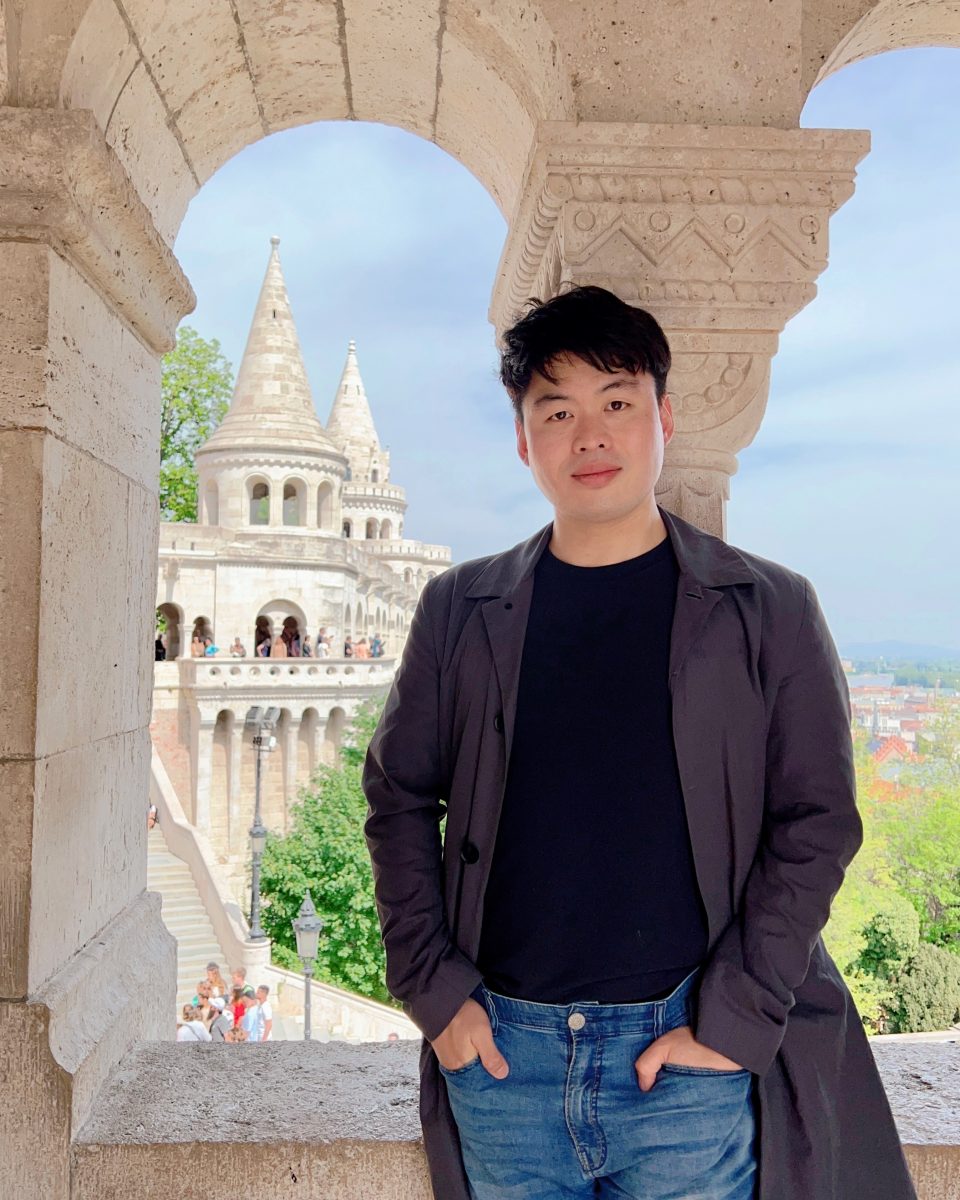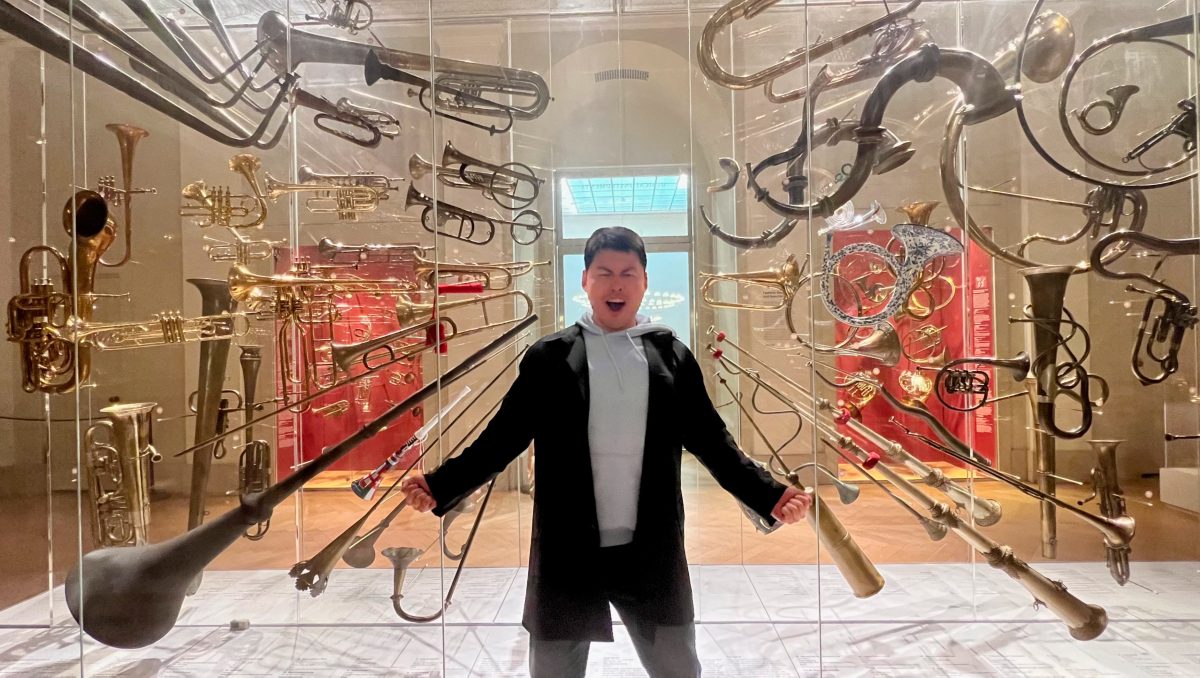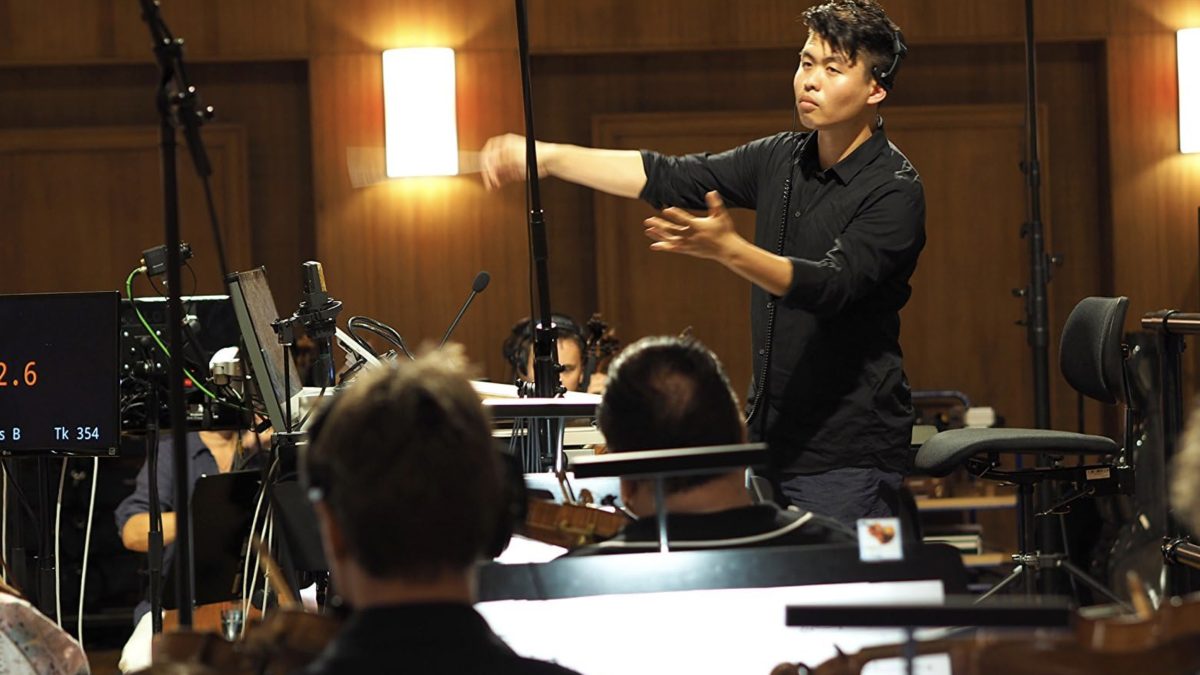South Korean composer will present himself to the Czech audience in the second half of the year. We had a unique opportunity to ask Michael Choi a few questions. You will learn why he chose this profession, what inspires him and also that this will not be his first visit to Prague.
You are a famous composer. Was there a specific moment or experience that made you realize this was your path? What motivated you to pursue your career? Looking back, do you think you would have chosen the same path again, or was there ever a moment when you considered doing something completely different?
I wouldn’t call myself a famous composer. Honestly, I always feel like I’m just getting started. Every new project brings unexpected challenges, and that’s what keeps things exciting. At my core, I’m someone who loves exploring creative projects that blend music and visuals. Of course, fame and recognition sound great, but that’s not something I can control. What really matters to me is simply being able to compose as much as possible while keeping a healthy mind and body. Before I became a composer, I actually studied fine arts and film production at SAIC (School of the Art Institute of Chicago). I worked alongside many talented artists and filmmakers, but I was always drawn to music. I grew up playing trombone in a youth orchestra for six years in Wisconsin, and I was deeply inspired by composers like Beethoven, Tchaikovsky, Debussy, John Williams, James Horner, Ennio Morricone, Hans Zimmer and Ryuichi Sakamoto.
The moment I truly decided to pursue composing came during my mandatory military service from 2011 to 2013. I was working as a civil public officer, processing birth and death reports at a local civic office. One day, I had to process the death report of a 15-year-old girl who had died in a car accident. It hit me hard. It made me ask myself: If I were to die tomorrow, would I be satisfied with how I’ve lived? The answer was no. That was when I decided. I wanted to create music that connects, inspires, and leaves a lasting impact. I was 24 at the time, and by the time I started seriously studying film scoring at Berklee Valencia, I was already 27. It was a late start, but I’ve always been a late bloomer. My grandmother used to say, “Be like a turtle – slow but steady, firm, and determined.” That mindset has stuck with me, and since then, I’ve been shaping my journey one step at a time.


You have worked with many talented people. Do you have any specific musical dream? For example, collaborating with a specific artist or creating music for a specific genre or project? What has been the most challenging project you’ve worked on so far?
There are so many musical ideas I’d love to bring to life. I enjoy both composing and producing, and if I can help create something remarkable – whether my own or someone else’s – that’s what excites me. If I had to pick my top four musical dreams, they’d be:
Cinematic Concert – I want to create concert series where the music feels like a film experience, rather than just a performance. I’ve been testing this concept with projects like Never Forgotten and film music concerts in South Korea, collaborating with composers and musicians. Eventually, I’d love to bring in internationally renowned artists to be part of this.
A World-Class Recording Studio in Busan – South Korea has great film talent, but not nearly enough focus on film scoring and sound production. My dream is to build a high-end recording studio in Busan, equipped with top-tier acoustics, musicians, and engineers. I’ve been inspired by the recording industry in the Czech Republic, and I’d love to see a similar global hub created in Korea.
Scoring a Major Franchise with Korean Traditional Instruments – Imagine Star Wars, Marvel, DC, or Disney with Korean traditional instruments woven into the score. That’s something I’d love to do – to bring a unique cultural sound to major franchises and introduce Korean music to a global audience.
Composing for a Dinosaur-Themed Project – This is personal. I’ve loved dinosaurs since I was a kid, and scoring a dinosaur film, game, or documentary would be a dream. Capturing the mystery and power of these creatures through music? That would be incredible.
So yeah, these are some of the big dreams I have. Hopefully, I’ll get to make them a reality one day!
You’ve worked on everything from animation projects, movies to game soundtracks. When you start composing, what usually sparks the first idea – a melody, an emotion, a visual cue from the project, or something else entirely?
Because I studied both film and music, I’ve developed a strong sensitivity to how music interacts with visuals. I believe there’s no such thing as a wrong melody – anyone can write melodies and chords in their own way. But getting the tempo and rhythm right is crucial. If those elements are off, the music won’t connect with the picture. It’s like trying to ask someone out at the wrong moment. Timing and pacing make all the difference, and even non-musicians can sense when something feels off. To get it right, I watch films and listen to references repeatedly until I can almost memorize them. Then, I hum melodies while syncing to the picture, pinpointing key tempo cues. I record ideas on my phone whenever inspiration strikes – even in the shower! Once I land on a melody that feels right, I refine it into a polished composition.
Can you tell us about your experience working on the Never Forgotten concert? What was the most memorable part of the project for you?
I can’t say there was a single most memorable moment in Never Forgotten – every part of it mattered, and I’ll cherish it all forever. Launching this concert project in 2023 was a huge challenge. I built everything from scratch – interviewing veterans, crowdfunding, and managing the entire production. At times, it felt like juggling ten different roles, but through all the sleepless nights, I was lucky to meet incredible people who shared the same vision. Working with the Seoul Grand Philharmonic Orchestra and collaborating with amazing musicians like Danny Koo, Sowon Kim, Dongyeon Ha, Jinsub Byun, and composers Dominik Svoboda, Natalia Tsupryk, Andi Roselund, Hooyoon An, Gangyu, Jinho Choi, Sojin Ryu, Maclaine Diemer, David Federman, Catherine Joy, Jiyeon Julie Lee, Wani Han, and Kayoun Yoo was an experience I’ll never forget.
More than just a concert, Never Forgotten was about honoring Korean War veterans and remembering its victims, especially since the war is often overlooked internationally. Even after 75 years, Korea remains divided, and while we’ve made incredible progress, we must never forget the sacrifices that made it possible. This concert was my way of reminding people of the lasting value of peace and humanity. In the end, no war should ever happen, and no human life should be lost in vain. For anyone interested in Never Forgotten, you can find the album online and watch the full concert on YouTube. Just search for it!
What do you enjoy the most about composing and producing music? How do you see the evolution of the Korean music industry, especially with its growing global influence?
I love transforming ideas into music – starting with a simple melody or emotion and shaping it into a full composition. What excites me most is creating music that connects with people and enhances storytelling in film, games, or visual projects. Now, I want to push the role of a composer even further – not just writing music, but contributing something meaningful that can inspire and impact society for a greater purpose. It’s incredible how far the Korean music industry has come. There was a time when North Korea was more well-known than South Korea, and honestly, most people didn’t even care which side of Korea someone was from. The internet played a huge role in spreading Korean art and culture, but I think PSY’s Gangnam Style was a major turning point.
For serious K-pop fans, anything pre-Gangnam Style feels like a relic, while everything after it is history – paving the way for BTS, BLACKPINK, Parasite, and Squid Game. But beyond K-pop, Korea has also become a powerhouse in classical music, producing world-class artists like Sumi Jo, Seong-Jin Cho, Yunchan Lim, and Nahre Sol. Now, with film composers like Jung Jae-il gaining recognition, I hope to see even more Korean composers recognized globally. More than anything, I’m grateful to the global community for embracing and appreciating our music, films, and culture. It’s truly remarkable that a country once rebuilding from war and destruction is now shaping global trends.
To me, that feels like a fairy tale come true. At its core, I think Koreans simply love having fun and sharing that joy with the world. There’s no hidden formula for success in art – it’s really just about being a decent human with good taste and a passion for connecting with others. That said, the Korean music industry still has room to grow. We’ve come so far, but there’s always space for more creativity. Hopefully, more artists from around the world will come to Korea, collaborate, and create something amazing together.
If you could compose a soundtrack for any moment in your life – like a scene from a movie – what moment would it be? And what would the music sound like?
My grandmother passed away on New Year’s Day 2025, just recently. It still weighs on me, and I get emotional just thinking about it. I’ll never forget that moment. I was alone by her side in her final moments, listening to every breath, every sound, as she slowly faded away. What made it even harder was knowing that while the world was celebrating a new beginning, I was facing the end of someone so dear, holding myself together through one of the hardest moments of my life. My grandmother and I were very close, and I feel like I need to write music about this. It’s interesting – when I first decided to become a composer, it was after processing the death of a young girl during my military service. And now, with the recent passing of my grandmother, I find myself facing the idea of death once again. It’s not something I dwell on out of fear or sadness. Instead, it makes me realize that before my own time comes, I want to live fully as a composer – to create music that not only expresses my own journey but also resonates with people and heals them in their moments of need. Maybe that’s the kind of composer I should strive to be. Apologies if this sounds a bit heavy, but for me, music is about embracing every part of life – even the difficult moments – and turning them into something meaningful.
Have you ever visited the Czech Republic or Prague? If so, what impressed you the most – whether from a musical, cultural or personal perspective? And if not, is there anything you would like to experience or discover here, perhaps in the field of music or filmmaking?
Thanks to my dear Czech friends Dominik Svoboda, Jan Vašina, and Alex Smutný, I’ve had the privilege of visiting Prague for the fourth time – and hopefully many more! This beautiful city never fails to impress me, especially with its vibrant music and art scene. The creativity, innovation, and resourcefulness of the people here are truly inspiring.
The Prague Composer Summit is a testament to this spirit – a remarkable event where composers from around the world come together. In a time when productivity often takes priority over artistry, this summit celebrates music in its purest form, fostering collaboration and creativity. I have no doubt it will continue to grow, bringing more composers together and strengthening a global community that truly loves music. It’s an honor to be part of this event, and I’ll always be happy to return, collaborate, and support this incredible initiative. Hopefully, in the near future, we can bring this spirit of international collaboration to South Korea as well, together with our Czech friends.
Zdroj: Michael Choi, original text, Composers Summit Prague
